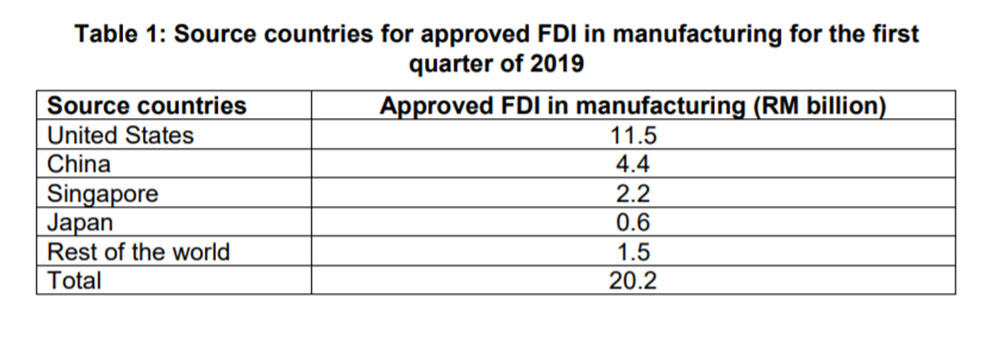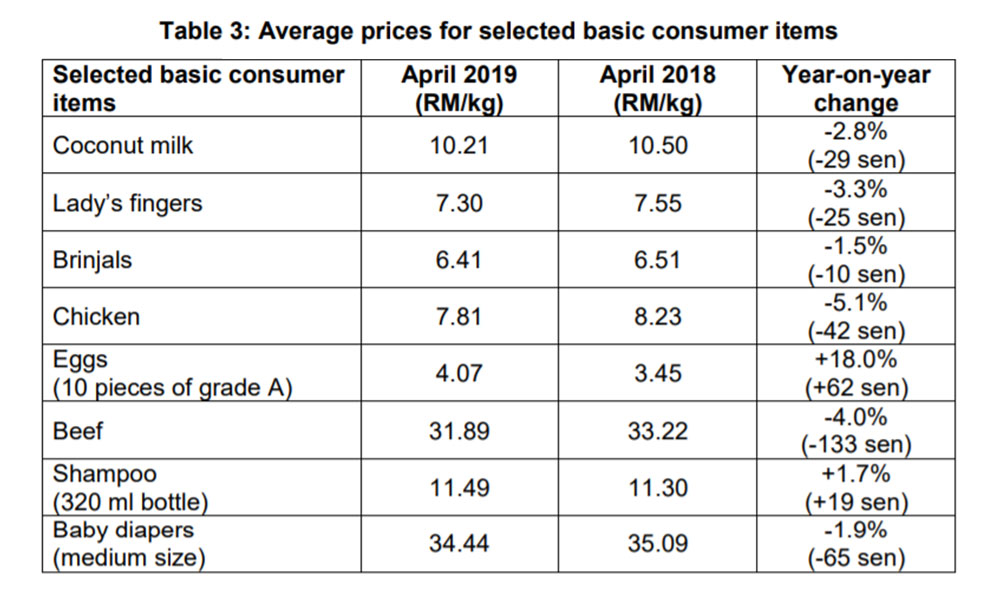MP SPEAKS | With a competent government at the helm, Malaysia is capitalising on its competitiveness within the global supply chain to become one of the top preferred safe havens in the region. Malaysia is reaping benefits from business relocation, as well as trade and investment diversions caused by the trade war between China and the United States.
As a result, foreign direct investment (FDI) into Malaysia has increased drastically. Additionally, industrial production growth in April 2019 has accelerated to a six-month high amid an environment of low and stable inflation.
These developments offer further hints of healthy second-quarter GDP growth.
Persistent rise in approved FDI
In the first quarter of 2019, approved FDI for all sectors soared 73.4 percent to RM29.3 billion, from RM16.9 billion a year ago. The first quarter increase shows that in trade and investment diversion Malaysia is enjoying a persistent positive trend that was preceded by a rise in 2018 approved FDI by 48 percent to RM80.5 billion, from RM54.4 billion in 2017.
The 73.4 percent 2019 first quarter rise in overall approved FDI was driven by a 127 percent manufacturing investment surge to RM20.2 billion, compared to RM8.9 billion a year ago. Out of the RM20.2 billion in approved manufacturing FDI, RM11.5 billion came from the United States, RM4.4 billion from China and RM2.2 billion from Singapore (Table 1).
Of note are approvals for Micron Technology and Jabil Circuit, which are making high-quality investment to expand their respective operations in Penang.
The RM29.3 billion worth of overall approved FDI is expected to create more than 41,200 jobs for Malaysians, of which 22,970 employment opportunities would be in manufacturing and 18,000 jobs in the services.
April industrial production growth is a 6-month high
Meanwhile, April 2019 industrial production growth accelerated to 4.0 percent year-on-year from 3.1 percent in March. The industrial growth was supported by robust manufacturing growth and mining output recovery.
The 4.0 percent April industrial expansion is the strongest in 6 months and it is above market consensus, which was 2.5 percent according to Bloomberg. In March 2019, industrial production growth of 3.1 percent also came above market expectations of 2.3 percent based on a Bloomberg survey (Table 2).
Inflation rate remains low
The April 2019 industrial expansion occurred during a period of low and stable inflation of 0.2 percent. Prices of some basic consumer items have fallen due to multiple factors, including the shift in the taxation regime from the burdensome goods and services tax (GST) to sales and service tax (SST), and the imposition of price ceilings on RON95 and diesel. In February 2019, the price ceiling of RON95 was reduced from RM2.20/litre to RM2.08/litre.
For instance, the average price of lady’s fingers in April 2019 was RM7.30/kg, which was 25 sen lower than it was a year ago at RM7.55/kg in April 2018. Average price of beef was RM31.89/kg, 133 sen cheaper than it was a year ago (Table 3).
A wider list of average prices of basic items are available publicly at the Department of Statistics Malaysia
The Ministry of Domestic Trade and Consumer Affairs (KPDNHEP) under Datuk Seri Saifuddin Nasution Ismail has done well in managing price hikes during the Hari Raya festive seasons, and the ministry will redouble its efforts to do so throughout the year.
LIM GUAN ENG is the finance minister.
The views expressed here are those of the author/contributor and do not necessarily represent the views of Malaysiakini.




